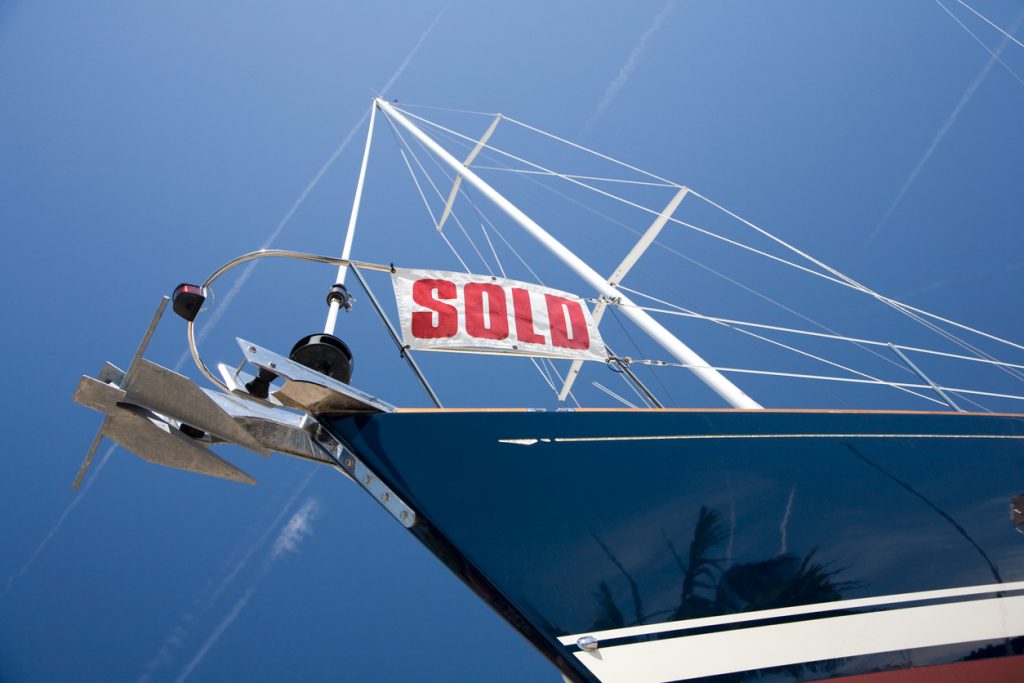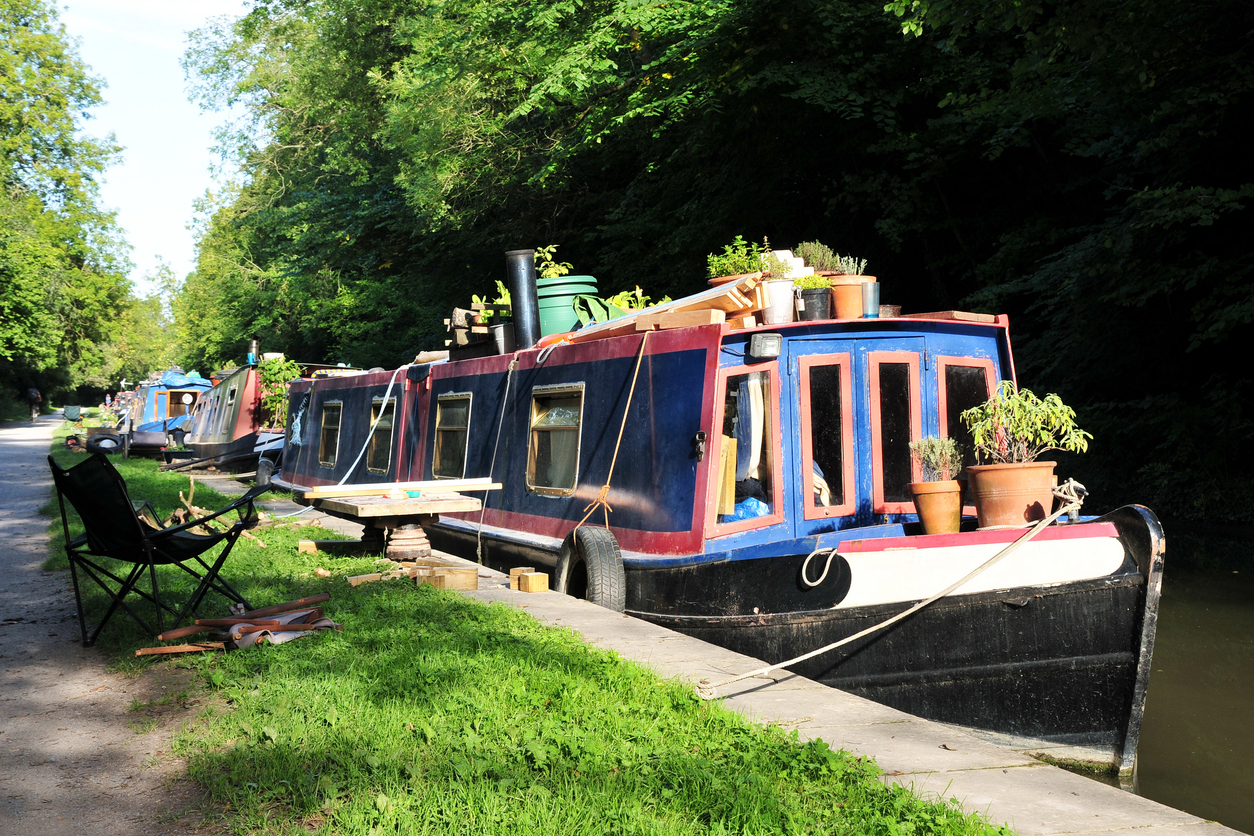There is a half-way house between buying a boat and hiring one for holidays – and it can appeal to those who can’t afford the whole vessel and who want the freedom of having access to a boat of their own.
Shared ownership is concept that has survived a number of dubious – nay criminal – characters over the years, but it is making a cautious and better regulated comeback as Peter Underwood explains.
This is the fifth in a series of nearly a dozen videos looking at getting afloat on Britain’s wonderful canals and waterways which have been produced for Norbury Wharf Ltd, based on the Shropshire Union Canal in Staffordshire.
Norbury Wharf is run by experienced boaters and offers everything from holiday boats and day boats to diesel and pump outs, and from full repaints and boat sales to major steelwork repairs.
*Video transcript*
Now there is a halfway house between buying the boat and hiring a boat, and that's called share boating. Share boating survived some dubious individuals, and despite causing some sharers a lot of heartache, it remains a popular option for those determined to take waterway holidays, willing to boat through much of the year but better able to afford a part share on a boat. It's an area full of pitfalls and options, here's what you get, what you pay, and what to look out for.
So share boating should be the logical halfway house or stepping stone between hiring the boat and owning one. Still, the bad experiences of many at the hands of collapsed and sometimes crooked ownerships and challenges of share boating businesses a few years ago left many people suspicious about the whole concept. Despite the history, it survives and is even growing slowly once more as new more responsible and crucially more transparent operators take up the slack, and more syndicates decide to manage themselves. There are over 200 shared ownership boats on the inland waterways, and that's about two and a half thousand owners. So there's a lot of experience of shared ownership about, and I quite admire them, because we see them out on the water in the deepest winter as well as in the high season, so these people have to be regarded as serious boaters.
The major management companies have built about ten boats a year, adding 100 or so boaters to the waterways each year, which has to be a good thing. The ownerships crash meant syndicate members really did appreciate that they were the owners of the boats and were able to make their own management decisions. Now today's management companies all work on the basis that the syndicate members entirely own the boat and that the syndicate has its own bank account. Now those selling boat shares or syndicate boat shares, as they like to call it, is a niche market aimed at those who can't afford the initial outlay of buying a boat. They feel they can better afford about £1,300 a year ongoing costs of a boat share rather than the £7,000 a year they estimate it costs you to own a boat. So about 15-20% of share boaters go on to their ultimate goal of owning their own boat. Still, the collapse of those large firms meant that the shareowners now must clearly understand that even if one of their management company hits the buffers, the syndicate will carry on cruising -there's a film there somewhere. So the management of the new companies tried to reassure shareholders that the only thing they lose will be maybe a month's management fees.
So it's still growing slowly, but a family of four would pay about £1,500-£2,000 I suppose for a week's high season hire of a four-berth narrowboat. So if you know you want a holiday on the waterways every year for the next decade or so, then having the use of a cared for and modern boat for three or four weeks a year for the same sort of money makes a lot of sense. Of course, if you have the money to buy into a new syndicate, you can own a new boat, or you can buy a pre-existing share for about £2,500 with a new one costing you seven to ten.
Bear in mind of course that your own share will depreciate in the same way. However, well-cared-for boats have a long life unless you're going into a self-managed syndicate you'll probably use a management company and their fees of about £500 a year have to be added to those ongoing costs. Boating isn't predictable, and those annual costs can suddenly increase if your boat needs a full repaint or a new engine or substantial steelwork, true of any boat. However, the share boat operators like to point out that whilst BOAT may still stand for 'bring out another thousand' to the owner of a 1/12 share that's just £83.33p.
Now I know some dismissed boat share as a form of timeshare, but the key difference is you're not buying a right to use, you're actually buying the boat or at least part of it. With that comes both rights and responsibilities. Most syndicates have about a dozen owners, enough to give each four weeks on the vessel each year with another four weeks left over for maintenance and other essential work. Owners usually get at least a month holiday on their boats each year and syndicates have agreements you'll sign which set out your responsibilities—filling up with diesel, topping up the water, getting a pump out as well as cleaning the boat before handing over to the next owner. Although, some contract out the cleaning and complete a full turnaround to the marina where the boats based. The agreement also sets out what damage or repairs are covered by the syndicate or insurance and what will fall to the owner during their weeks on board. Big decisions like repaints, new engines, changing moorings are usually made of annual meetings, and the rules usually specify a 75% majority for selling the boat completely.
With or without using a management company, you have to be willing and able to get along with the other owners and to accept the inevitable compromises majority decisions create. I've come across joint owners complaining about fellow syndicate members who 'think they're the only ones who run the boat'. One older couple had bought a share after selling their own boat and couldn't understand why the others had insisted on the Cratch cover, in fact, they enlisted my help in removing it for their holiday. Buying a boat share will oblige you to negotiate the politics of a group of strangers, all of whom may expect something different from their purchase.
Most complicated of all is the sharing of weeks, but at least they're established if sometimes complex. Under the draw system, the year is divided into four seasons, and at the annual meeting, weeks are drawn at random for each season. Once that's complete they can swap them amongst themselves, unwanted weeks can be used by other owners. The list system then, puts owners in a set sequence and the first choice of weeks goes to those at the top of the list and then on down, earned each year for two owners at the top of the list move to the bottom some have special more expensive shares which give privileged rights to school holidays weeks, others just find it easier for owners to cooperate by swapping school holiday weeks with those who prefer to go boating out of school holiday times.
If you're convinced boat share may be the next step towards becoming a boater, you can buy or sell one using one of the share brokerage firms. However, some will only sell shares in vessels they've built and managed; others will sell them on behalf of a member of any syndicate, so you get a wider choice of second-hand shares. There are also specialist websites, and you'll even find them on eBay but make sure you're paying the market rate and that you can see exactly what you're committing to. You need to understand the true value of the boat you're buying into, especially at a time when prices are depressed, and that applies to new build boats by management companies, as well as a private buyer would pay for the boat a similar length and specification. You need to be happy that you'll be able to keep track not only where your money is going but also that the finances of the inside the syndicate are on an even keel. That every member is paying their way, and that means unfettered regular access to the boats bank account.
Whether you should go self-managed or pay for a management firm to operate the syndicate is a difficult question to answer. One couple I met had a share in 2x ownership boats one self-managed and the other managed by a management firm. They reckon it's a balance of cost against convenience and point out that much depends on the quality of the syndicate members in the self-managed setup. Well, that's echoed by people who deal with these boats, and Simon Jenkins has had between 2 and 25 share boats here over the past few years. He says that while some syndicates are very well managed, they plan ahead, recognise the work and expenditure needed to keep the boat running well and looking good, others, especially with older boats, tend to get away with as little spend as possible, just have private boat owners really. The vessels go downhill, of course as a result. But despite that, it's a good way of getting out on to the canals, and for some people, it's a halfway house between hiring and full ownership.
I suspect boat sharers are a niche market, to become a part-owner, you'll need to be an enthusiastic boater, have a lump sum about you to make the initial purchase, then be happy to commit to spending that lump every year. If you want different sorts of holidays, then it probably won't be for you. But of course, you may be happier with hiring, taking a boat holiday when you want to do it and not locked in for the next year or two years or five years. So it's equally on the other side, if you want to spend every spare moment on the water, then share boats are not going to give you quite what you want. Whichever way you go you need to take precautions, this industry didn't have a good reputation in the past, although it has massively improved now, whatever you do, have fun!


